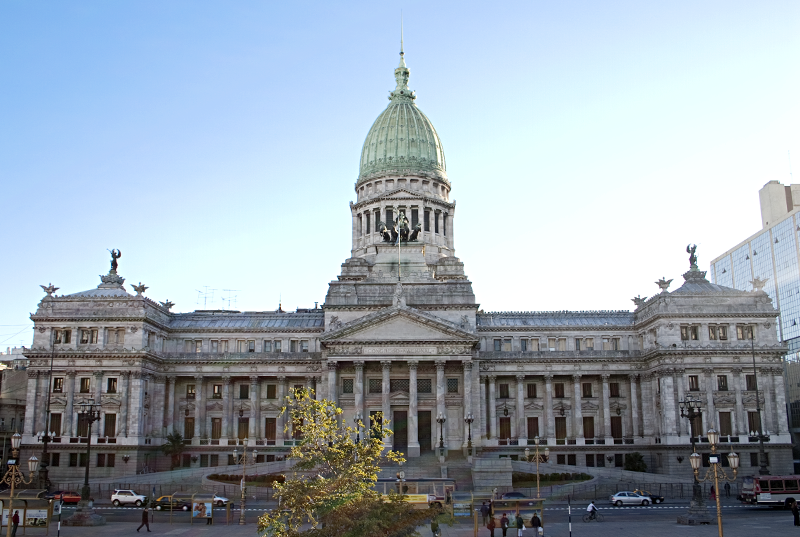“Brazil has taken a step in the right direction, in my opinion, as I have long asserted that if a country wants to increase tourism, it needs to relax its reciprocity fees or visa requirements. Two examples of countries which did just that are Chile and Argentina.”
Brazil to Allow Entry With No Visa to Citizens of the United States, Canada, Australia and Japan
What you just read was an opinion which I wrote in this article on Monday, January 29, 2018 — and my suggestion is coming true: effective as of Monday, June 17, 2019, the government of Brazil will permit citizens of the United States, Canada, Australia and Japan to enter the country without applying for or paying for a visa in order to increase the number of visitors between destinations by as much as 25 percent.
The citizens of those four countries will be able to stay in Brazil for 90 days from the date of first entry in the country — and extendable for an equal period — provided that it does not exceed 180 days, every twelve months, counted from the date of the first entry into Brazil. The exemption is also valid for tourists who are in transit while in Brazil.
Until that date, citizens must still apply for an electronic visa in order to gain entry into Brazil.
“These developments come as part of a series of measures that Brazil has taken to facilitate visitor access to the country”, according to this press release from Embratur, which is the Tourism Board of Brazil and is a federal agency and part of the Ministry of Tourism. “Brazil has already seen extremely positive results with the increase of about 35% in the visa application in less than a year since implementing e-visa. These four countries are considered strategic for the development of tourism in Brazil.”
Eliminating the application and payment of a visa for citizens of the aforementioned countries “is one of the most important achievements of the Brazilian tourism industry in the last 15 years and we are confident that it will be extremely beneficial to the country”, Marcelo Alvaro Antônio — who is the Minister of Tourism in Brazil — said. “This decision of the Brazilian government proves that we are living a new moment and that tourism is being seen as a vector of economic and social growth of the entire nation. This is the first step; we still have much to celebrate.”
Brazil Eased Visa Requirements and Reduced Reciprocity Fee for United States Citizens
Effective as of Thursday, January 25, 2018, the fee which citizens of the United States had been required to pay in order to visit Brazil was significantly reduced to $44.24; and the service fee of $4.24 — which is included in the reduced visa fee — is for the convenience and ease of processing the visa application electronically in three simple steps, which will substantially reduce the amount of time needed to apply and receive the visa.
169,910 visas — either for business, tourism or transit — had been issued to citizens of the aforementioned four countries in 2017. With the implementation of the electronic visa, that number increased by almost almost 35.23 percent to 229,767 in 2018.
Prior to Thursday, January 25, 2018, citizens of the United States who wanted to apply for a visa to visit Brazil not only had to pay a reciprocity fee of $160.00; but they also were required to visit one of the ten offices of the Consulate General of Brazil in the United States with a passport and necessary paperwork in order to obtain the visa — or they could pay service fees for an agency to act on their behalf. As I first reported in this article on Tuesday, December 12, 2017, the process was usually time-consuming and rather inconvenient, as visitors from the United States, Canada, Australia and Japan would no longer need to travel to the Brazilian consulate nearest to them and wait in long lines, as they can apply for electronic visas using computers or portable electronic devices from the comfort of their own homes — or from virtually anywhere else where a Wi-Fi connection is available.
The minimum processing time of the electronic visa is five business days.
The citizens of the United States, Canada, Australia, Japan and other countries were able to stay for up to a maximum of 90 days without a visa when they entered Brazil between Wednesday, June 1, 2016 and Sunday, September 18, 2016 for the summer Olympic games — even though tourists visas to Brazil were valid for up to ten years.
Theories and Experiences With Relaxed Visa Policies

Effective as of Sunday, February 12, 2017, Belarus relaxed both visa fees and requirements in what seems to be an effort to increase tourism. As a result, I visited Belarus shortly afterwards. I still have articles which I need to write pertaining to my experiences in Belarus.
Additionally, Saudi Arabia was expected to issue tourist visas later in 2018; but officials are considering allowing citizens of the United States and others to visit the country without visas sometime in 2019 in an effort to transform its economy and image.
Let visitors and tourists spend that money on local businesses within a country instead. After all, the government will still collect taxes through the businesses.
Although I can understand why a country would want to impose restrictive visas on visitors for various reasons — keeping track of them while they are in that country; as well as to have a revenue stream — they do stand the chance of losing out on the economic benefits of the dollars of tourists and business people when the process of securing that visa is unnecessarily complicated and prohibitively expensive. Saudi Arabia, North Korea and Russia are three countries which immediately come to my mind when it comes to the hassle of getting a visa; but Brazil had been known to not exactly have the easiest or least-expensive process either, as evidenced by this discussion expressly posted on FlyerTalk for answering questions pertaining to tourist visas for traveling to and from Brazil.
For me, countries which have such restrictive visa policies indicate to me that they are not friendly countries; or perhaps they just do not want for you or me to visit for whatever reasons — and yes, I do understand that there are people who view the United States in that manner as well. In today’s “shrinking” world primarily due to technology, that is a potentially costly mistake, in my opinion. Restrictive visa policies may scratch the “tip of the iceberg” pertaining to greater issues within certain countries; but they do not help in promoting being part of what should be a peaceful global community.
By reducing — or, better yet, eliminating — the fees to secure a visa for a visitor, I believe that the economic benefits would more than make up for it. That former reciprocity fee of $160.00 per person for a visa to visit Brazil can now instead go towards patronizing businesses and other areas of the general economy, which in turn should increase tax revenues for the government as one of many benefits. I am by no means an expert on economic policies in global economies; but I believe that charging exorbitant visa fees actually does more harm to countries economically in the long term than helps them.
At the very least, countries should do whatever is possible to strike a realistic balance in ensuring their security and charging fees to visitors: attempt to have the visa process as easy as possible for visitors to enter countries without compromising on smart security; and lower the visa fees as much as possible — or even consider eliminating them.

Entering Bahrain and Mozambique are two examples of costly visas and unnecessary harassment which soured my experiences in those two countries enough to the point of where I would be just fine if I never visited them again.
Summary
A strong United States dollar combined with dozens of daily flights, citizens of the United States, Canada, Australia and Japan can experience Brazil simply by “grabbing a plane. From the Amazon in the North, to the wines in the South; from the exotic Pantanal in the Midwest to the lush beaches of the Northeast; amazing cities like Rio de Janeiro, São Paulo, Salvador and hundreds of hidden gems are just a few hours away.”
The aforementioned press release continues: “With its spectacular beaches, lush rainforests, rich culture, exotic cuisine and exciting nightlife, Brazil is one of the most compelling countries to visit today. Travelers are invited to explore Brazil’s incredible geographical diversity – from the wetlands to the beaches. With a beautiful, tropical climate, Brazil is an easily accessible, exotic get-away for couples, families and business travelers.”
That Brazil finally took this step on a permanent basis is great news, in my opinion. More countries should consider following its lead.
Idealistically, I would really like to see the day where you and I can travel anywhere in the world with few to no impediments; but with human nature being the way it is, I know that will not happen anytime soon — if at all — especially with the recent news that citizens of the United States will need to register to visit parts of Europe starting in the year 2021…
…but at least the world still seems to generally be heading closer towards that goal overall — even if it is only at a glacial pace…
All photographs ©2005, ©2015 and ©2016 by Brian Cohen.
